Kidnapped

Brief Synopsis
Cast & Crew
Alfred Werker
Warner Baxter
Freddie Bartholomew
Arleen Whelan
C. Aubrey Smith
Reginald Owen
Film Details
Technical Specs

Synopsis
By 1747, the Scottish Highland clans have twice rebelled against English rule. Both times they were bloodily crushed. Rebel leader Alan Breck leads his men to Edinburgh, where the Duke of Argyle orders Breck's arrest. At Dominie Campbell's School for Boys in the countryside, young David Balfour, who is convinced that Breck is a traitor, learns that his father has died in Newfoundland and that he is to go to live with his wealthy uncle Ebenezer in Edinburgh. On the way, David passes through a village where the king's tax collector, whom the people call Red Fox, ruthlessly demands more payment than they have ever paid before. As David objects to the rough handling of a minister, one of Breck's men, against orders, shoots and kills Red Fox. The soldiers, thinking that David deliberately caused a diversion, chase him, and he is apprehended by Breck, who fears that he could identify James, the man who fired. Breck reprimands James and says he will have to sail to America because of the shooting. When James objects, saying that he was about to marry, Breck decides to bring his fiancée, Jean MacDonald, to Glasgow so that they can sail together to America. After David tries to escape, Breck takes him along to find Jean. On the way, David and Breck argue but become friends. With Jean, they pose as a family to get by the Redcoats. After Breck and Jean part from David, who continues on to meet his uncle, they further outwit the Redcoats. Breck is appreciative of Jean's bravery and quick thinking, while Jean begins to fall in love with him. After he finds out that his uncle is hated among the peasants, David goes to his uncle's large, spooky castle. Ebenezer tries to kill David by sending him without a candle up a steep staircase that ends abruptly in a steep drop, but after the top step collapses, David rushes down and confronts his uncle. After reading a letter from his father which states that David will be the lord of the estate upon his father's death, David goes to see attorney Angus Rankeiller, but Ebenezer pays Captain Hoseason to kidnap David and take him to the Carolinas. Following imprisonment in the hole of Hoseason's ship, David agrees to be a cabin boy. When the boat docks in Invercraig, on the way to Glasgow, Breck and Jean come aboard, still disguised as a married couple. Now upset that Breck will leave her with James, Jean tells him that she overheard the men on board plan to get a reward for him in Glasgow. Breck thinks that David has revealed his identity, and as he berates him, a seaman hears him identify himself as Alan Breck. Breck fights off the men with his sword and escapes to shore with Jean and David. Breck then apologizes to David, and the three return to Edinburgh, where they trick Ebenezer into confessing in front of Rankeiller that he sold David to Hoseason. Breck is captured, however, and convicted of the murder of Red Fox and treason and is sentenced to hang. David sneaks into the Duke of Argyle's castle and convinces him that Breck and he are alike in their love for Scotland. The duke then visits Breck, and although he will not alter the sentence, he agrees to bring reforms to the people or resign his position of Lord Justice-General of Scotland, if Breck will tell his people not to riot. On the day his is to be hung, Breck complies, and the duke, moved by Breck's service to his country, commutes the sentence to exile. As Breck and Jean board a ship, they ask David to join them, but he says he must remain to grow up to be a good Scotsman.

Cast

Warner Baxter

Freddie Bartholomew

Arleen Whelan

C. Aubrey Smith
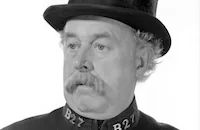
Reginald Owen

John Carradine
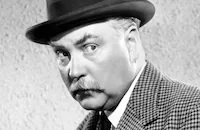
Nigel Bruce

Miles Mander

Ralph Forbes

H. B. Warner
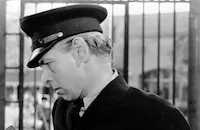
Arthur Hohl

E. E. Clive

Halliwell Hobbes

Montagu Love
Donald Haines

Moroni Olsen

Leonard Mudie
Mary Gordon
Forrester Harvey
Clyde Cook

Russell Hicks
Billy Watson

Eily Malyon
Kenneth Hunter

Charles Irwin
John Burton
David Clyde

Holmes Herbert

Brandon Hurst
Vernon Steele
C. Montague Shaw
R. T. Noble
Clifford Severn Jr.
Harry Watson
Bob Falkenberg
Eric Wilton
Bruce Sidney
Thomas Louden
John Spacey
Colin Kenny
Clive Morgan
Douglas Gordon
Wyndham Standing
Alexander Dunsmuir
Douglas Gerrard
Dave Thursby
J. P. Mcgowan
Henry Mowbray
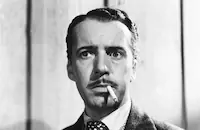
Boyd Irwin
Denis D'auburn
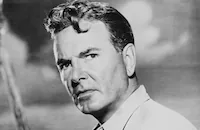
John Sutton
Neil Fitzgerald
James Carlyle
Arthur Stuart Hull
Peter Hobbes
Keith Kenneth
Gordon Hart
Marty Faust
Yorke Sherwood
Leyland Hodgson

Ivan F. Simpson
Zeffie Tilbury
Andrew Atkinson
Frank Baker
Ivo Henderson
Larry Dodds
Charles Mcnaughton
Cecil Weston
Evan Thomas
Ian Maclaren
Bob Stevenson
Crew
Edwin Blum
Chris Christensen
Eugene Grossman
Eleanor Harris
Roger Heman
Bernard Herzbrun
Curtis Kenyon
Mark-lee Kirk
Arthur Lange
Sonya Levien
Thomas Little
Kenneth Macgowan
Booth Mccracken
Allen Mcneill
Ernest Pascal
Gregg Toland
Gwen Wakeling
Darryl F. Zanuck

Film Details
Technical Specs

Articles
Kidnapped (1938)
Synopsis: In 1747 in the Scottish Highland, young David Balfour (Freddie Bartholomew) attends class at Dominie Campbell's School for Boys in the rural countryside. Balfour is a supporter of the English rule, and feels that the Rebel leader (and local hero) Alan Breck (Warner Baxter) is a traitor; this puts him at odds (and in fights) with other local boys. At home, David learns from his guardians that his far-away father has died. Since his monetary support is gone, David is sent to Edinburgh to live with his rich uncle Ebenezer (Miles Mander). Along the road to Edinburgh, David witnesses the shooting of a tax collector in a village and soldiers chase the boy, thinking he was planted there as a diversion. David is saved from the soldiers by Breck; James (Ralph Forbes), one of the Rebels in his group, fired the fatal shot. Breck insists that James leave for America to escape, but he refuses to leave without his fiancée, Jean MacDonald (Arleen Whelan). Alan, Jean and David travel through the countryside posing as a family to elude the Redcoats, and along the way David comes to admire Breck, and Breck and Jean fall in love. Eventually, David arrives at his uncle's spooky castle, where Ebenezer tries to kill David to win his estate. After a failed attempt, Ebenezer pays Captain Hoseason (Reginald Owen) to kidnap David and take him on his ship bound for the Carolinas. As a cabin boy on the ship, David eventually runs into Breck and Jean again.
The romantic plot that the screenwriters added to the story was geared toward newcomer Arleen Whelan, appearing in her first major film. She had been a manicurist at a Hollywood Boulevard salon, where she was discovered by director H. Bruce Humberstone, who suggested her to Zanuck. Whelan was signed to a 7-year contract at Fox in 1937 and within a year was deemed prepared to appear third-billed as the female lead in Kidnapped. She handles the task well, even surrounded by veteran ace supporting players (and scene-stealers) like C. Aubrey Smith, John Carradine, Nigel Bruce and H.B. Warner.
Otto Preminger was the director originally assigned to helm Kidnapped. It would have been only the third American feature for the Austria-born director, and certainly his first big-budget picture. Biographer Chris Fujiwara wrote (in The World and Its Double: The Life and Work of Otto Preminger, Faber & Faber, 2008) that in 1937 Fox signed the director to a prestigious new $1,250-a-week contract and that, "'my status was changing from an untried employee to a favorite,' Preminger noted; he began receiving regular invitations to Zanuck's dinners." In November 1937, Preminger was given the Kidnapped assignment, one of the biggest films on the studio's schedule. As quoted by Fujiwara, Preminger was wary of the property: "I considered myself a literate man but I hadn't even heard in Vienna about the writer or his book. The whole idea of Scotland, the Highlands, was something foreign to me - except I knew the Scottish wore kilts. Even my English at that time was not far enough advanced for me to be able to read the book." Preminger's friend Gregory Ratoff talked him into taking the prestigious job. Preminger shot for two weeks, while Zanuck was in New York on business. Zanuck viewed the rushes when he returned to Hollywood, and blew up at Preminger. "He didn't like what I had done," Fujiwara quotes the director, "and I don't blame him. I think it wasn't very good. We got into a fight about a scene with a dog. I don't remember the details any more, but I know that Zanuck claimed there was a scene in the script which I said wasn't in the script, and we go into a tremendous shouting match. I was right, it wasn't in the script. But he got so mad that he threw me out and assigned another director." That new director was Alfred L. Werker, a workaday Fox contract director whose previous best-known picture was probably The House of Rothschild (1934). Preminger was effectively dropped from Fox for yelling at the boss, although there was still nine months left on his contract. He returned to stage work and did not direct another movie until 1943. (All would be forgiven, though; he returned to Fox and would soon direct the enormous hit Laura [1944] for them).
Critical reaction to Kidnapped at the time of release was predictable; almost every notice commented on the changes made to the plot of the novel. The critic for Time magazine assigned some possible motives, writing, "producer Darryl F. Zanuck, the better to display a fine figure of a lass named Arleen Whelan, has shifted many of the novel's best scenes to strange and shadowy positions, has relegated to the attic the memorable ball-and-cutlass siege of the Brig Covenant's roundhouse [and] has made storied Patriot Alan Breck play nursemaid." This writer also highlighted Bartholomew's performance, noting, "As the solemn Whig lad, David Balfour of Shaws, 14-year-old Freddie Bartholomew may be a shade on the jackanapes side for those who want their Stevenson straight, but he fits this feckless Fox version. Gibbous nose aloft and in fine priggish voice, Master Freddie imparts phonetic reality to an age when Britishers wrote s's that looked like f's."
The critic in Newsweek magazine had similar complaints about the plot, writing, "Hollywood has changed [Stevenson's] book - as well as history - almost beyond recognition." The writer goes on to say, "...the quartet of screen writers who inflate the Scotch rebel Alan Breck to heroic proportions as he rouses the clans against the tax-collecting English, and then burden his swashbuckling career with an unconvincing love interest, fail to improve on Stevenson. ...The studio has been careful in its reproduction of a colorful period and has enlisted more capable actors... than there are good roles to go around. Nevertheless, by reason of an indifferent script, Kidnapped is historical melodrama of only average appeal." Writing for The Spectator, famed critic Graham Greene hated the movie: "I doubt if the summer will show a worse film than Kidnapped; the only fun you are likely to get from it is speculation, speculation on the astonishing ignorance of filmmakers who claim to know what the public wants. The public will certainly not want this Kidnapped, where all the adventures which made them read the book have been omitted. Is it even honest to bring in Stevenson's name? (There should be a society for protecting authors who may be out of copyright)."
Lovers of the Stevenson novel would have plenty of options to choose from in the years following the Fox film. The oft-filmed story first turned up again in an elaborate 1960 live-action adaptation from Walt Disney, starring James MacArthur as an older David Balfour and Peter Finch in the Breck role. A Delbert Mann-directed British adaptation in 1971 starred Michael Caine as Breck and Lawrence Douglas as Balfour, while a 1995 TV-movie featured Armand Assante as Breck (Assante stepped in after Christopher Reeve, who was originally cast in the part, was injured in the horsing accident that resulted in his spinal injury). As of this writing, the most recent adaptation of Kidnapped is a 2005 BBC mini-series with James Anthony Pearson as Balfour and Iain Glen as Breck.
Producer: Darryl F. Zanuck
Director: Alfred L. Werker; Otto Preminger (uncredited)
Screenplay: Curtis Kenyon (contributor to treatment, uncredited); Walter Ferris, Richard Sherman (both uncredited); Sonya Levien, Eleanor Harris, Ernest Pascal, Edwin Blum (screenplay); Robert Louis Stevenson (novel)
Cinematography: Gregg Toland; Bert Glennon (uncredited)
Art Direction: Bernard Herzbrun, Mark-Lee Kirk
Music: Arthur Lange, Charles Maxwell (both uncredited)
Film Editing: Allen McNeil
Cast: Warner Baxter (Alan Breck), Freddie Bartholomew (David Balfour), Arleen Whelan (Jean MacDonald), C. Aubrey Smith (Duke of Argyle), Reginald Owen (Capt. Hoseason), John Carradine (Gordon), Nigel Bruce (Neil MacDonald), Miles Mander (Ebenezer Balfour), Ralph Forbes (James), H.B. Warner (Angus Rankeiller)
BW-90m.
by John M. Miller

Kidnapped (1938)
Quotes
Trivia
Notes
The film's credits open with a picture of Robert Louis Stevenson lying in bed writing. The screen credit for the title reads, "Robert Louis Stevenson's Kidnapped: The Adventures of David Balfour." The film was reviewed under the title Kidnapped. According to news items, Twentieth Century-Fox writers were working on the treatment in March 1937, but it was shelved until the end of November 1937. According to Hollywood Reporter, Alfred Werker replaced Otto Preminger as director at the end of the second week of filming while Preminger went to work on an original story with a foreign locale. In his autobiography, Preminger recounts that he was surprised when, after having directed only two films in Hollywood, he was assigned to Kidnapped, a big budget film. Preminger, who was not familiar with the book, read the script and complained to his friend, Gregory Ratoff, who was acting as Zanuck's assistant, that he did not want to direct the film because he had no understanding of the people in the part of the world where the story took place. Ratoff, however, persuaded him to accept. When Zanuck saw some of the rushes, he accused Preminger of cutting out a portion of the script without permission. During a heated argument, Preminger denied the charge, and when Zanuck yelled at him, Preminger yelled back. Preminger subsequently refused to apologize, and, according to the autobiography, because of the incident, he was prevented from working in Hollywood. He returned to stage direction and did not direct another film until 1943. According to a Hollywood Reporter news item, in March 1938, near the end of shooting, both Arleen Whelan and Werker were forced to leave the set because of the flu, and assistant director Booth McCracken filled in as director.
Reviewers disagreed concerning liberties taken with the source material: New York Times called the film "a flagrant case of literary vandalism," while Film Daily noted that "the best of each [of the Stevenson novels] have been maintained." This was Arleen Whelan's first film; Twentieth Century-Fox generated considerable publicity about her before the film's release. According to a Los Angeles Times news item in May 1937, Douglas Scott was originally set to play the role of "David Balfour." While the screen credits list Arthur Lange with musical direction, a pressbook for the film at the AMPAS library credits Louis Silvers; Silvers' participation has not been confirmed. The pressbook also notes that the elaborate Scottish village set was erected in Laurel Canyon in the Hollywood Hills. According to a modern source, the swords used in the film were from the collection of Ralph Forbes, who played the character "James," and had once been owned by Rudolph Valentino and used in his films. Another modern source noted that author Henry James once called Alan Breck "the most perfect character in English literature." Other films based on the same source include a 1948 Monogram release starring Roddy McDowell and Dan O'Herlihy, directed by William Beaudine; a 1960 Walt Disney production, directed by Robert Stevenson and starring Peter Finch and James MacArthur; and a 1971 American International Pictures, directed by Delbart Mann and starring Michael Caine and Lawrence Douglas.
















